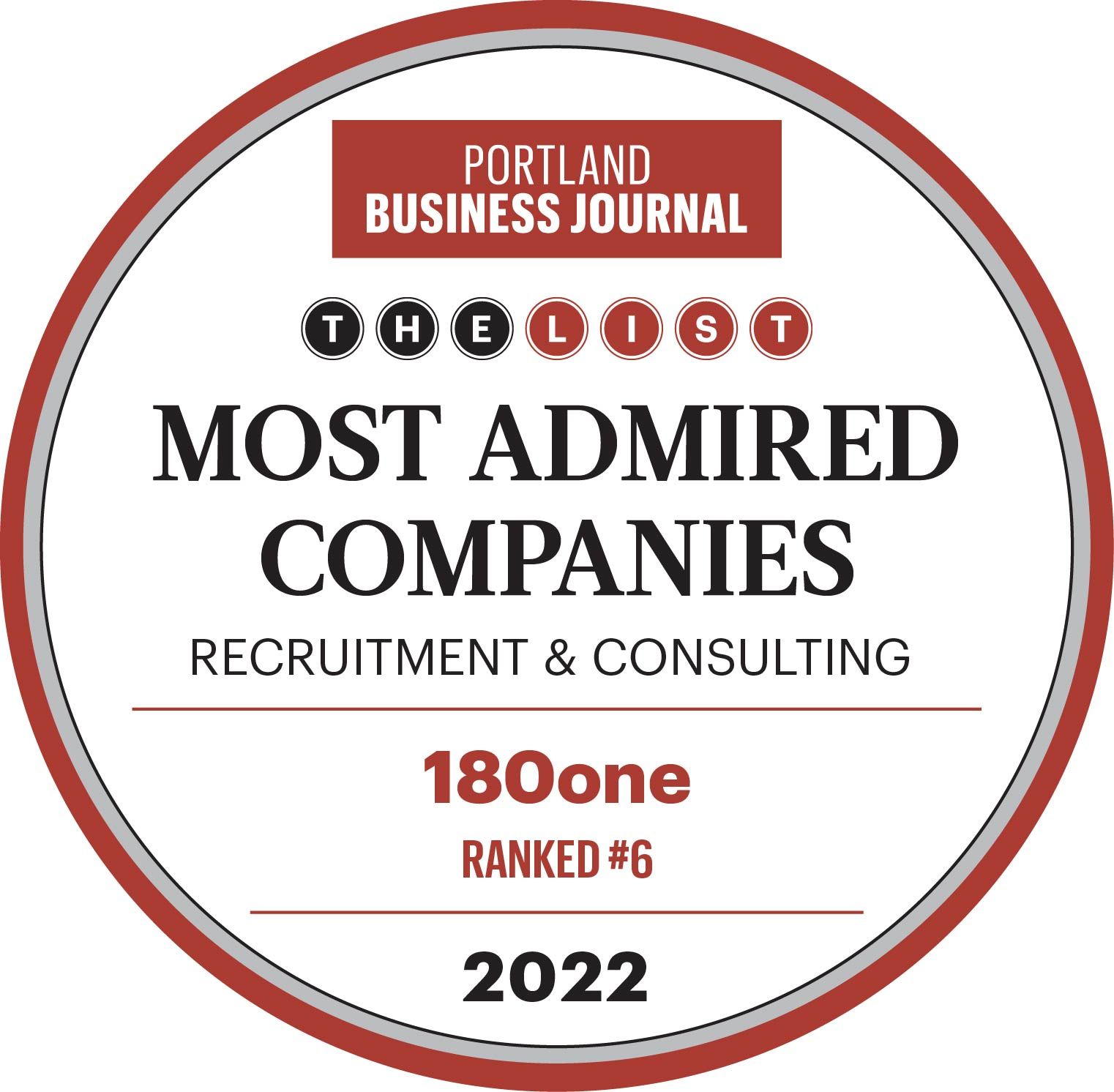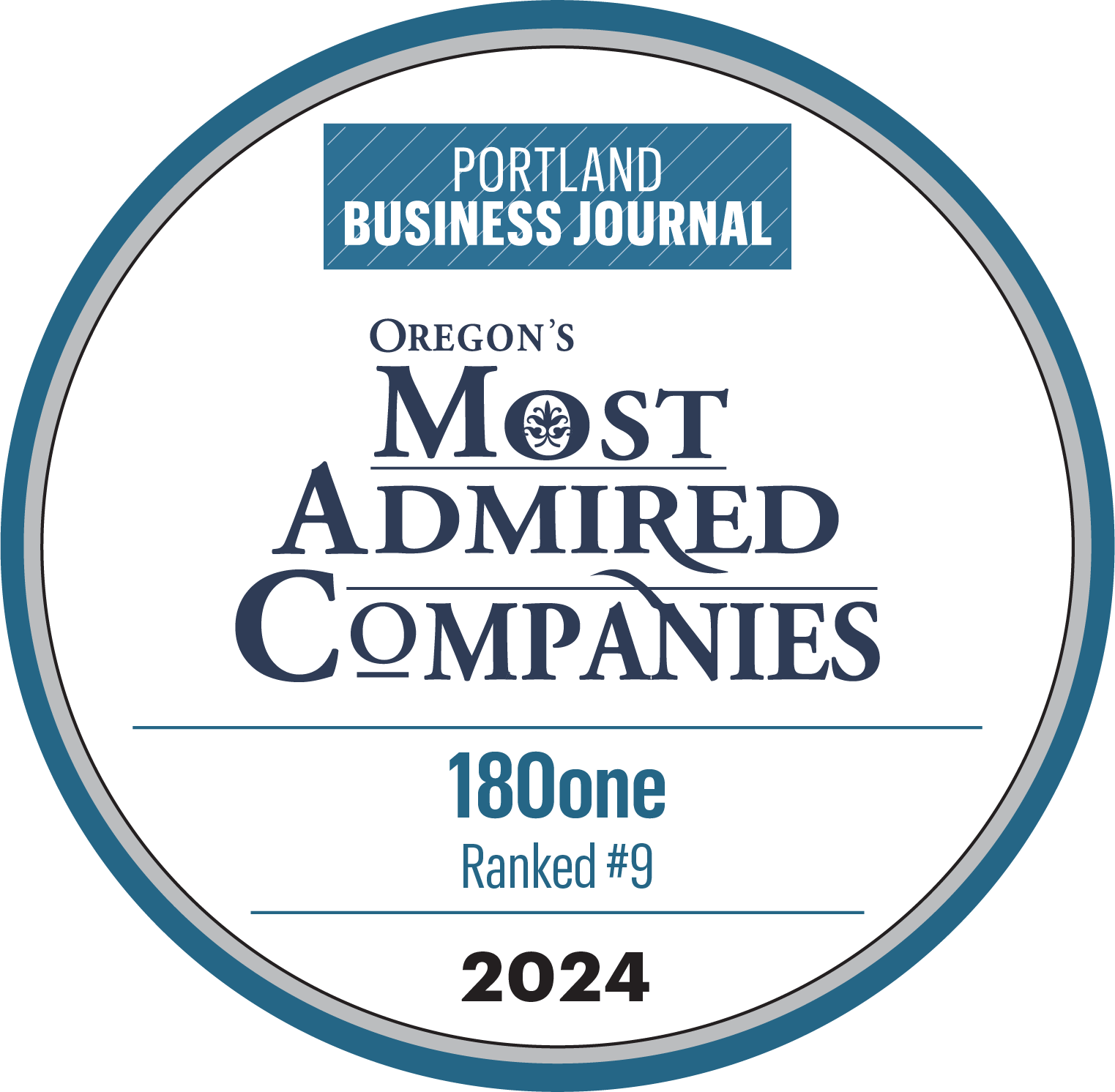Interview Bias: How It Happens & How to Avoid It, Part 1

This article is the first in 180one’s two-part series looking at how your organization can identify and avoid Interview Bias, and why it’s a vital consideration in hiring. Check back in Next Week for the next installment. Read a piece about the importance of good DEI practices here.
Part I
Have you ever interviewed a candidate who you clicked with right away? Have you ever interviewed a candidate who you felt in your gut wasn’t a fit the moment they walked in the door? Research by business consulting groups and institutions such as Harvard Business School consistently shows that many high-level hiring decisions are made based not on a candidate’s qualifications or capabilities, but rather on the hiring manager’s first impressions. These subconscious and subjective reactions to a candidate injected in the interview process are known as “interview bias.”
180one is kicking off the new year with a two-part series to help your organization identify and avoid the pitfalls of interview bias, and to dig into evaluation and interview techniques that greatly diminish bias.
How Bias Can Work Its Way Into the Hiring Process
From the first look at a resumé’s language to the opening moments of a first meeting, interview bias will often derail an objective evaluation of a prospective employee. It’s human nature to bring our own background and biases to a first meeting in the professional environment, just as we do in a social setting. However, unconscious biases can lead to social categorizations that influence how a hiring manager or team land on their top candidate – these categorizations are often not logical, and, at times, not legal.
In working with our clients, we’ve found that hiring managers may read something on a candidate’s resumé before he or she has even met the candidate that influences their perception of the quality of the candidate. This sometimes leads them to begin looking for reasons to hire or not to hire.
Companies invest significant time and money to attract the most qualified candidates for executive-level positions, and that investment in the hiring process should lead to selecting the most suited skill set of the pool. Personnel psychology researchers have found, however, that the social exchange of interviews, while still the most widely used form of candidate assessment, predict less than 15% percent of ultimate employee performance yet open up the most opportunities for bias. (For a deep dive on this, here’s a recent study by renowned researcher Frank Schmidt.)
Types of Interview Bias
What are the most common types of interview bias? Management and organizational researchers have repeatedly observed several biases common across many industries that can have a negative impact on choosing the most qualified candidate for the job.
“Like Me” Bias: It’s human nature to think highly of someone who has a similar mindset or personality to your own, and “Like Me” bias can easily happen when a candidate appears to be similar in style or personality to the hiring manager – as a result, the hiring manager feels that candidate would be best suited for the job. An example is when a candidate attended the same school as the person evaluating their resumé, and/or majored in the same field of study, it’s determined that candidate must be qualified.
Halo/Pitchfork Effect: The Halo Effect happens when one positive characteristic of the candidate influences the entire interview process in favor of the candidate. For example, a candidate has a degree from an Ivy League university, so the assumption is made they must be highly competent.
The opposite of Halo is known as the Pitchfork Effect, when one negative characteristic overshadows the candidate’s overall qualifications. For example, when we are reviewing candidates with our client, we see the Pitchfork Effect come up when a hiring manager states their company hired someone from ‘X’ organization in the past, and people who come from ‘X’ organization don’t fit their company’s culture.
Stereotyping Bias: This is our inclination to hold an opinion about how a person will think or act because they’re a certain race, gender, religion or another characteristic. One of the most prevalent stereotypes is that a female candidate with small children will require flexibility in their work schedule.
Nonverbal bias: Nonverbal bias occurs when a candidate is assessed in a positive or negative light because of an observed attribute, such as body language or an aspect of physical appearance. Examples of this include style of dress, weight, speech patterns, eye contact, or mannerisms such as the firmness of a handshake.
Negative Emphasis Bias: When the interviewer receives one piece of negative information and uses it as a base for entire hiring decision. People have a natural tendency to give negative information more weight than positive information.
Cultural Noise: The interviewer’s ability, or lack of, to distinguish between a candidate’s answer that is crafted to be more socially acceptable or on-trend rather than revealing their true belief or experience.
Contrast Effect: When a candidate with a stronger presentation style interviews after a weaker-style candidate, the stronger-style candidate may appear more qualified because of the contrast between the two.
When a hiring manager collaborates with a recruitment firm like 180one to address the many potential pitfalls of interview bias, the search consultant can help unpack and unwind assumptions made about a candidate and arrive at a much more objective ranking.
In Conclusion
Interview bias is a broad topic to explore, so we’re digging into it in two parts. In our second article in the series, we’ll discuss the importance of overcoming common biases, and look at tactics for building a more diverse employee group. A dynamic mix of races, genders, and points of view in the workplace is incredibly valuable for improved productivity and creativity, as research has shown that diverse teams consistently outperform more homogenous teams. For more insights check back for Part 2 of series on bias. While you're at the Water Cooler read another article about ways to improve your hiring processes entitled
"Diversity and Inclusion in Recruitment - Five Best Practices."






